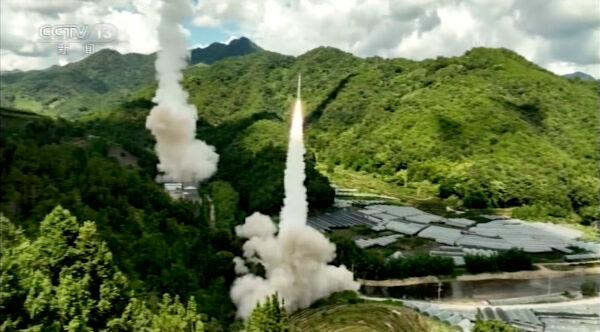The United States is approving $428 million in new arms sales to Taiwan as part of its effort to help the island nation deter a Chinese communist invasion.
“The proposed sale will help improve the security of the recipient and assist in maintaining political stability, military balance, and economic progress in the region.”
The proposal includes two separate sales. One is for $330 million in replacement parts and the other is for $98 million in nonstandard equipment and related costs. Both sales are aimed primarily at supporting Taiwan’s fleet of F-16 fighter jets, C-130 transport planes, and other weapons systems initially supplied by the United States.
Such a sale would maintain Taiwanese capabilities that are “critical to regional security” and enhance “interoperability with the United States and other allies,” according to the statement.
Taiwanese leadership welcomed the announcement online and said the island would use the equipment to ensure the continued peace and stability of the region.
The Communist Threat
The move is likely to incense the Chinese Communist Party (CCP), which rules China as a single-party state and claims that Taiwan is a breakaway province that must be united with the mainland.
Despite the CCP’s claims, Taiwan has been self-governed since 1949, has never been controlled by the CCP, and boasts a thriving democracy and market economy.
The United States has maintained a precarious middle position in this status quo since the establishment of the Taiwan Relations Act in 1979. It formally recognizes—but doesn’t endorse—the CCP’s viewpoint. The United States also maintains legal ties with Taiwan guaranteeing that it will supply the island with the arms it needs for self-defense.
Despite the threats, numerous U.S. administrations have maintained ties with Taiwan and continued to provide arms to the island as governed by the 1979 Taiwan Relations Act, which outlines the responsibility of the United States to sell military equipment to the island for its defense against potential threats from China.
The announcement of the sales is likely to draw widespread bipartisan support from a Congress that’s increasingly concerned with the U.S. commitment and capacity to ensure Taiwan maintains its self-defense.
In a letter penned just hours before the deals were announced, Sen. Josh Hawley (R-Mo.) issued a letter to the Biden administration stating that the U.S. effort to arm Taiwan now would determine the security of the United States in the years to come.
“Averting the real and growing threat from China requires us to expedite delivery to Taiwan of the weapons it needs to defend itself—provided Taiwan commits to an asymmetric defense, significantly increases its own defense spending, and pursues necessary defense reforms.”





